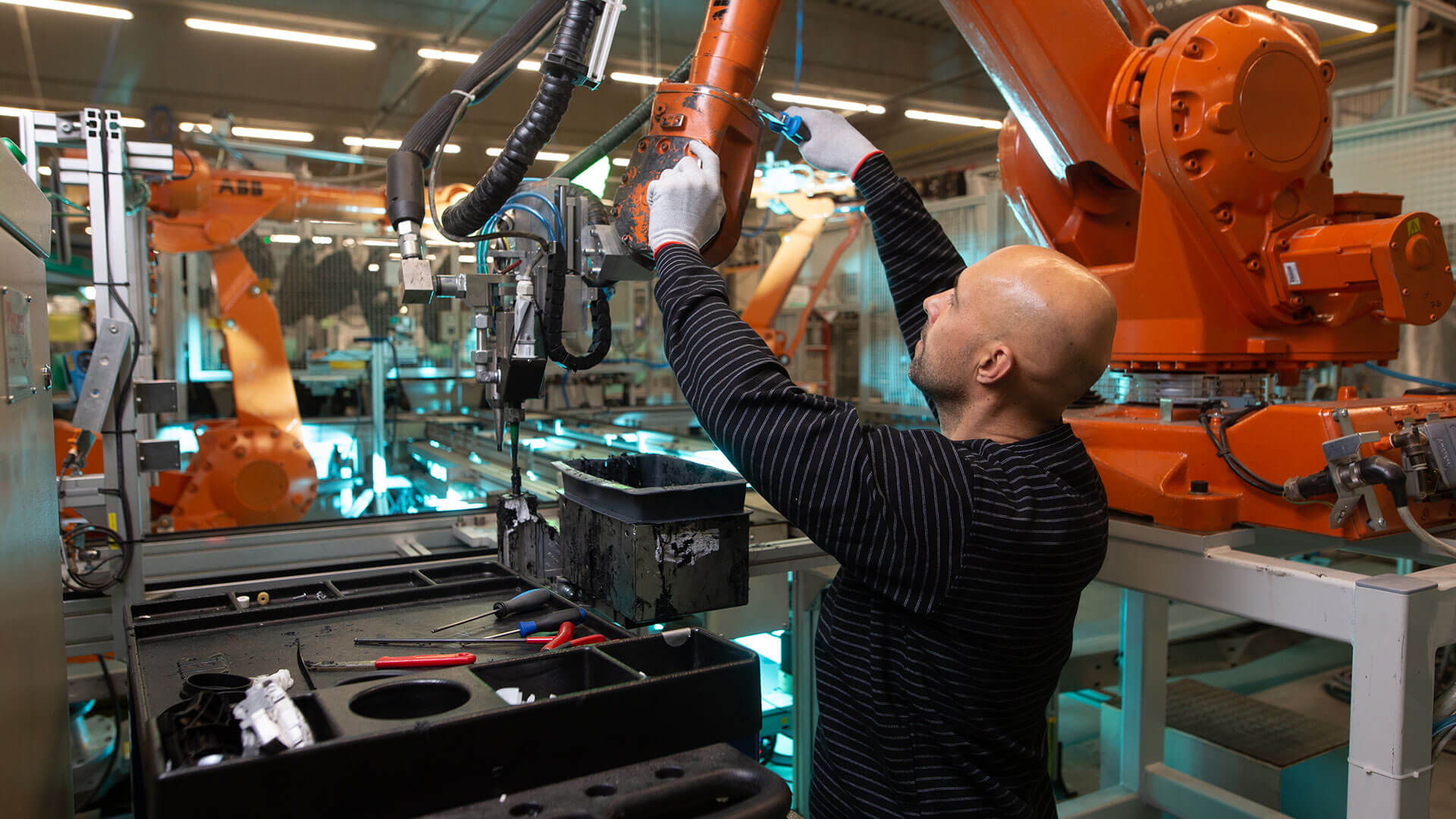Manufacturing Technology
Manufacturing technology is the development of new methods and solutions that enable products to be manufactured more efficiently, flexibly and sustainably. In a world where resources are under pressure and global trade is undergoing major changes, there is a growing interest in ensuring robust production.

The research focuses on automation, digitalisation and the use of new materials. This includes, among other things:
- Digitalisation of industrial processes
- Automation and robotics
- Circular economy and life cycle assessment (LCA)
- Logistics, supply chain and operations management
- Design and optimisation of production systems
Research is conducted in close collaboration with small and medium-sized enterprises, industry partners and public actors. This collaboration ensures that future production systems are adapted to new requirements for climate, security of supply and technological innovation.









